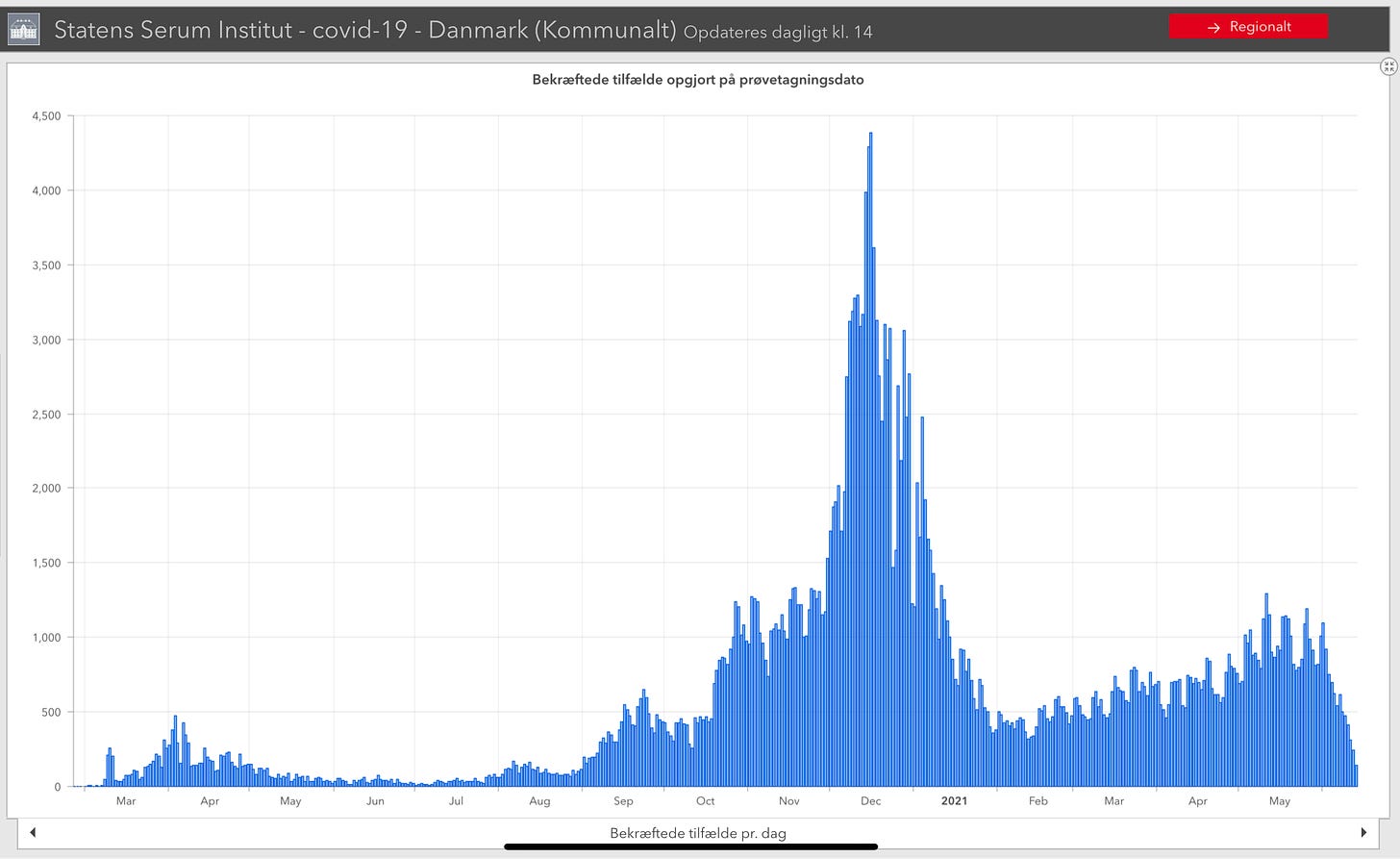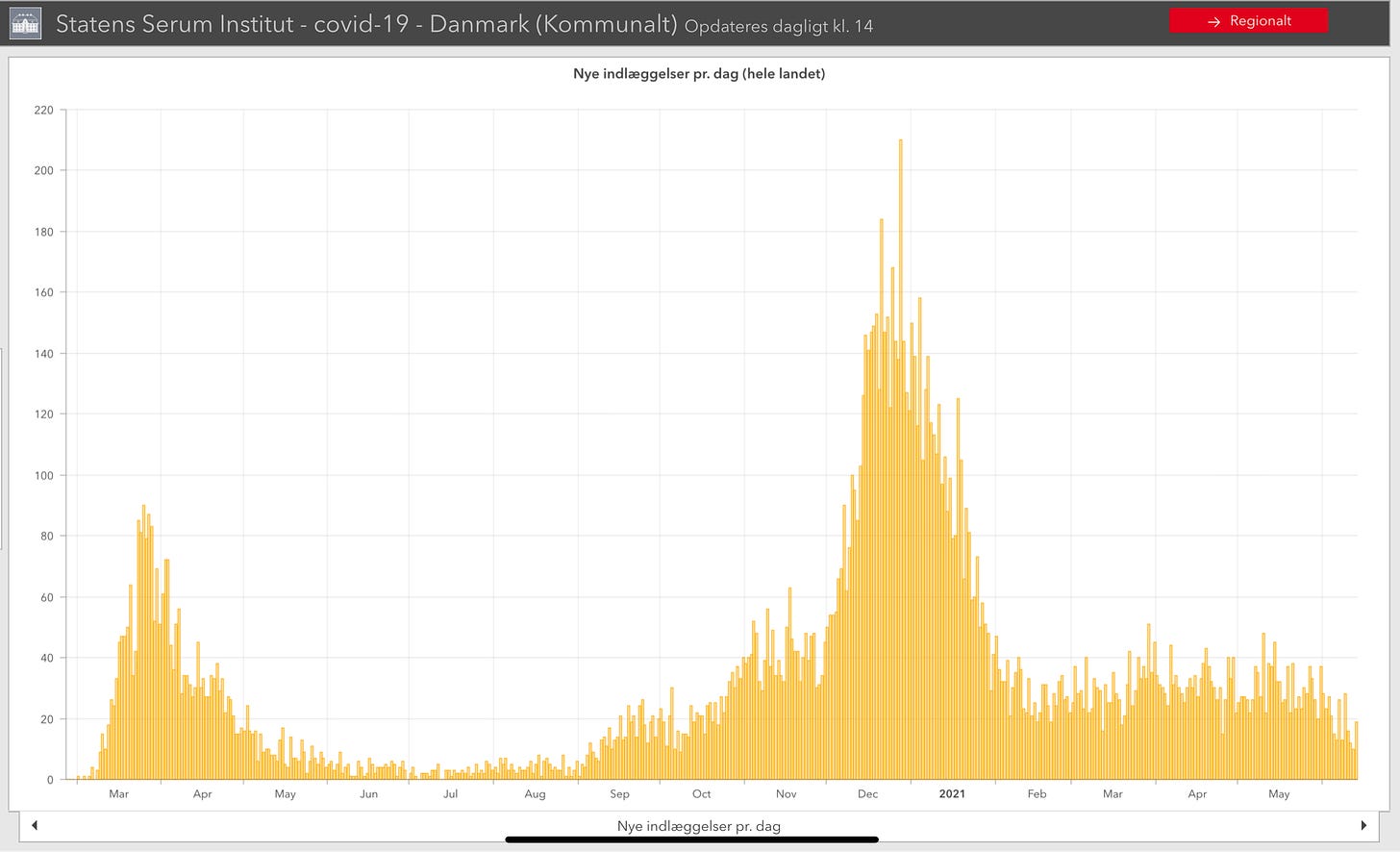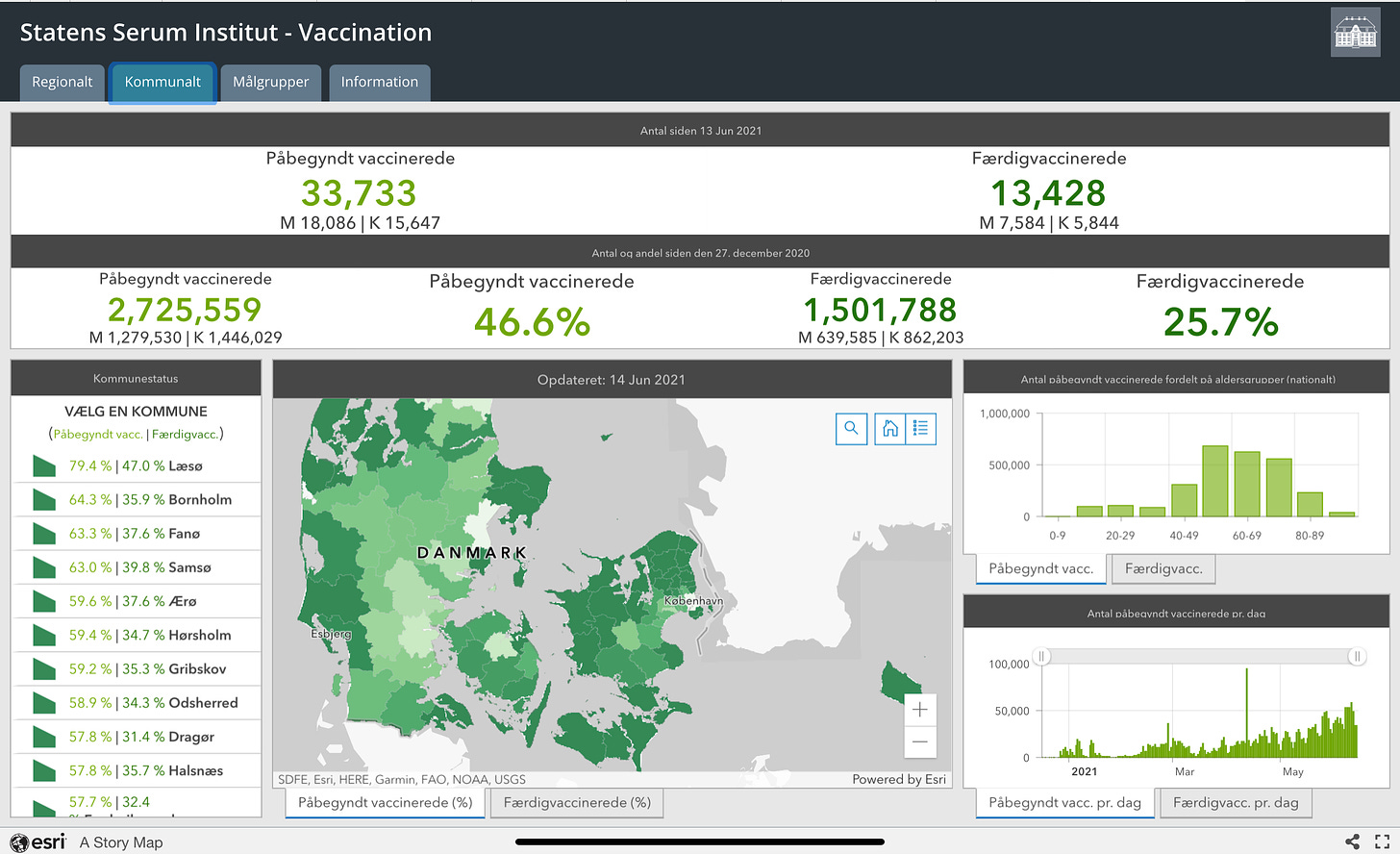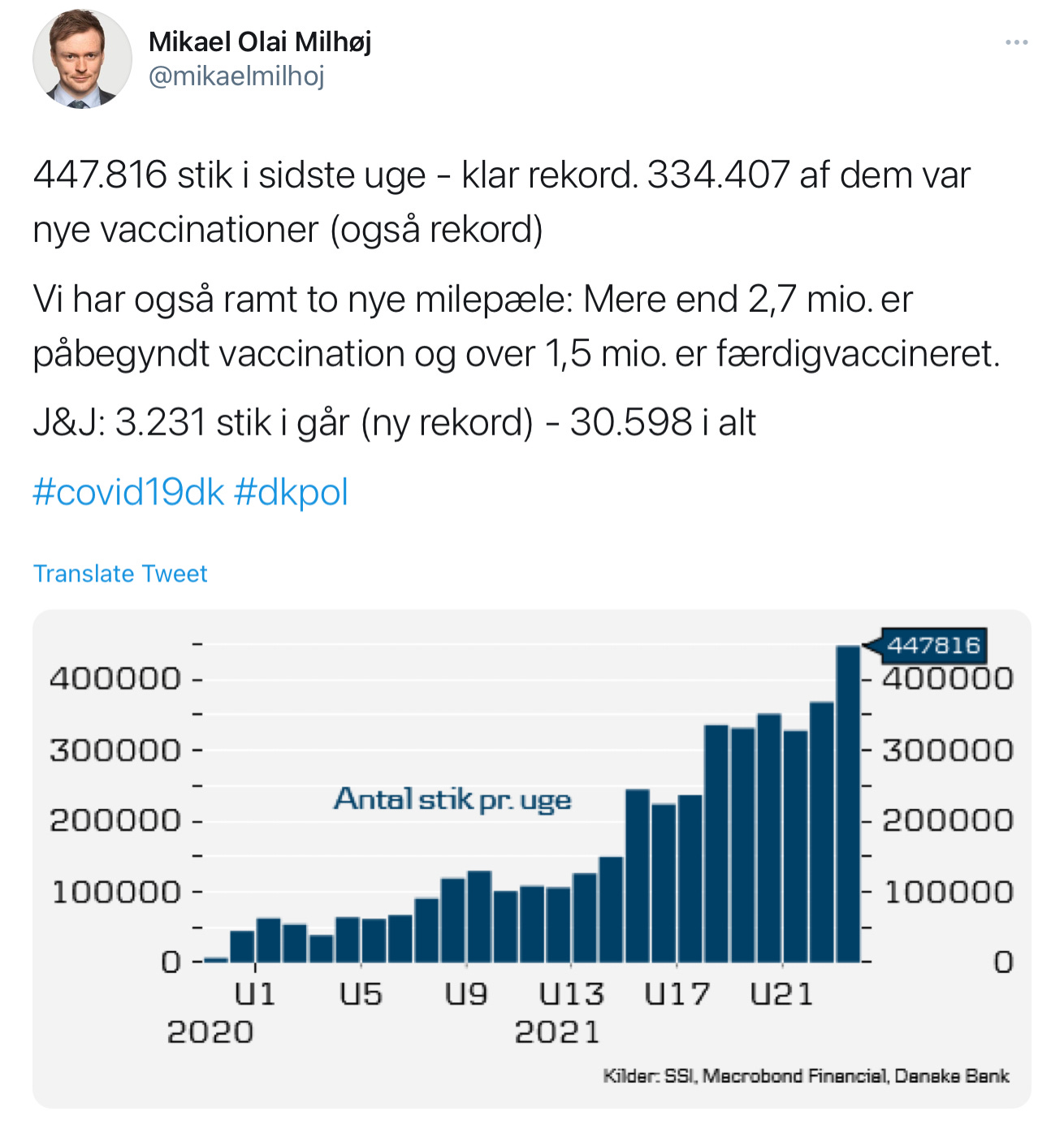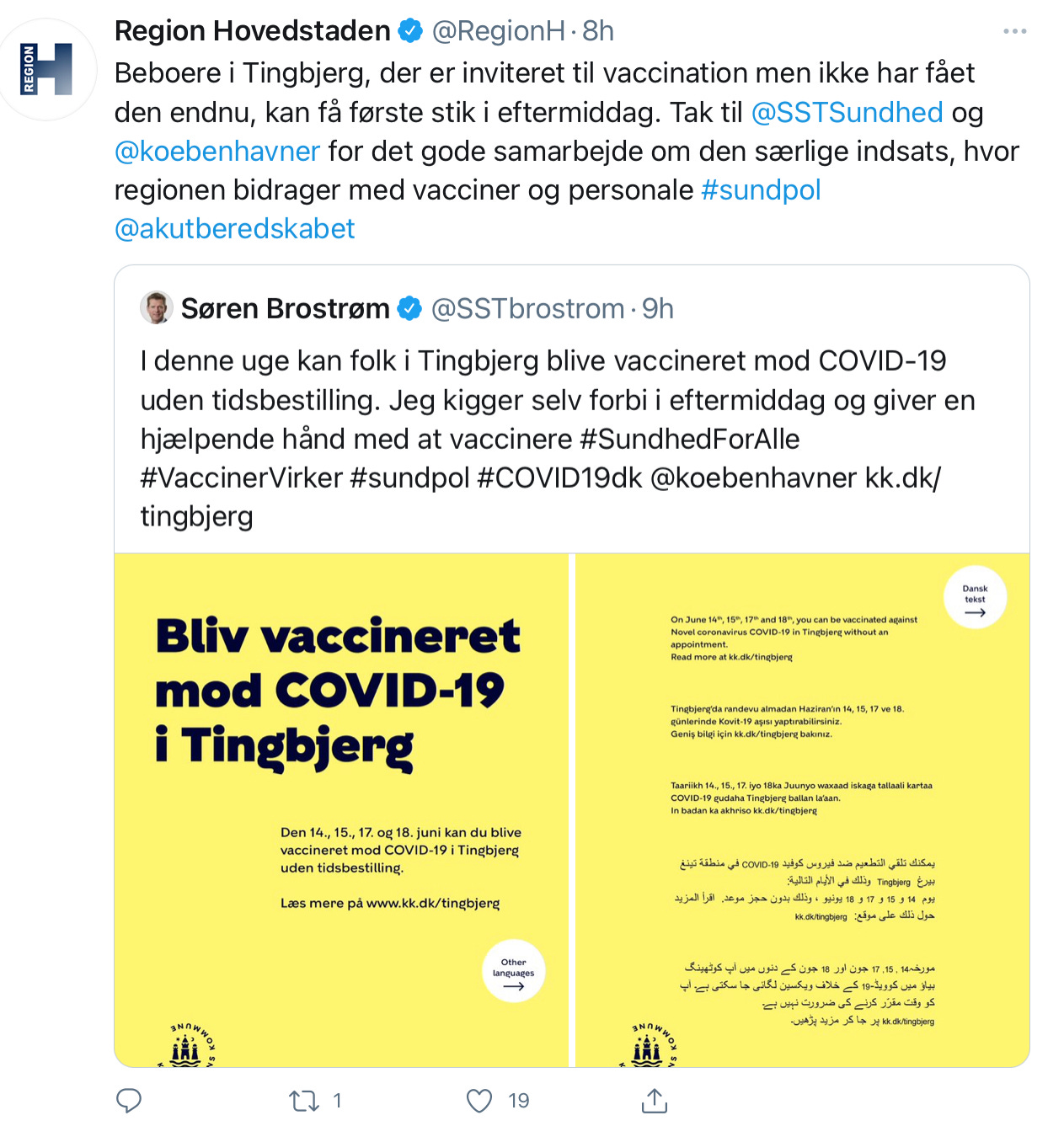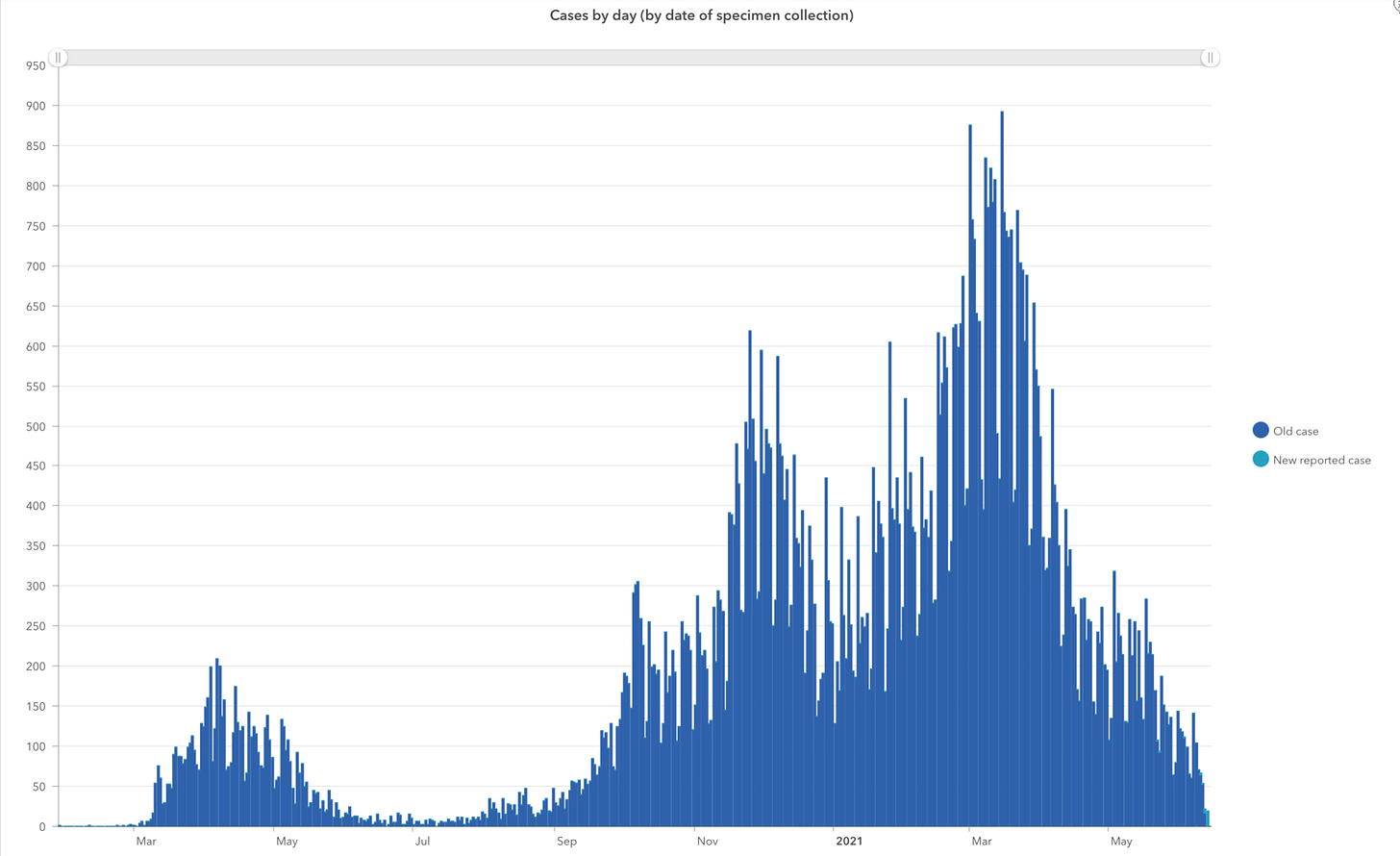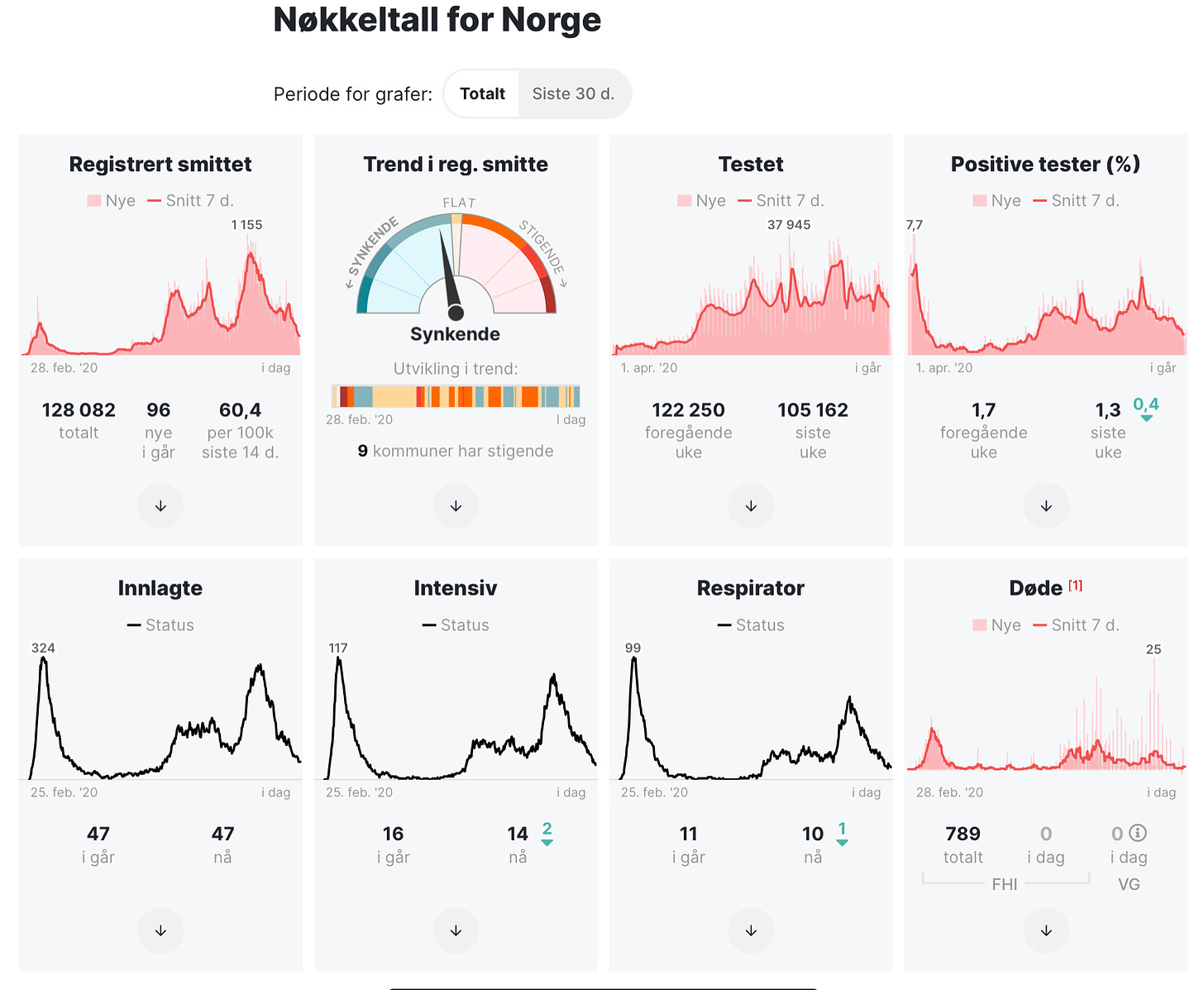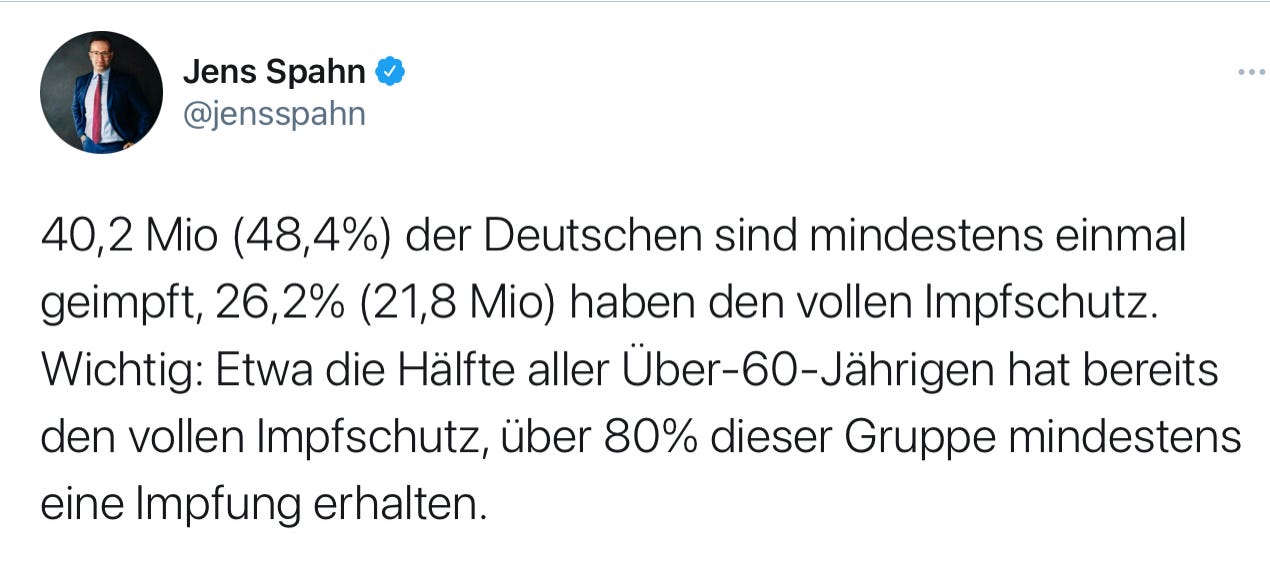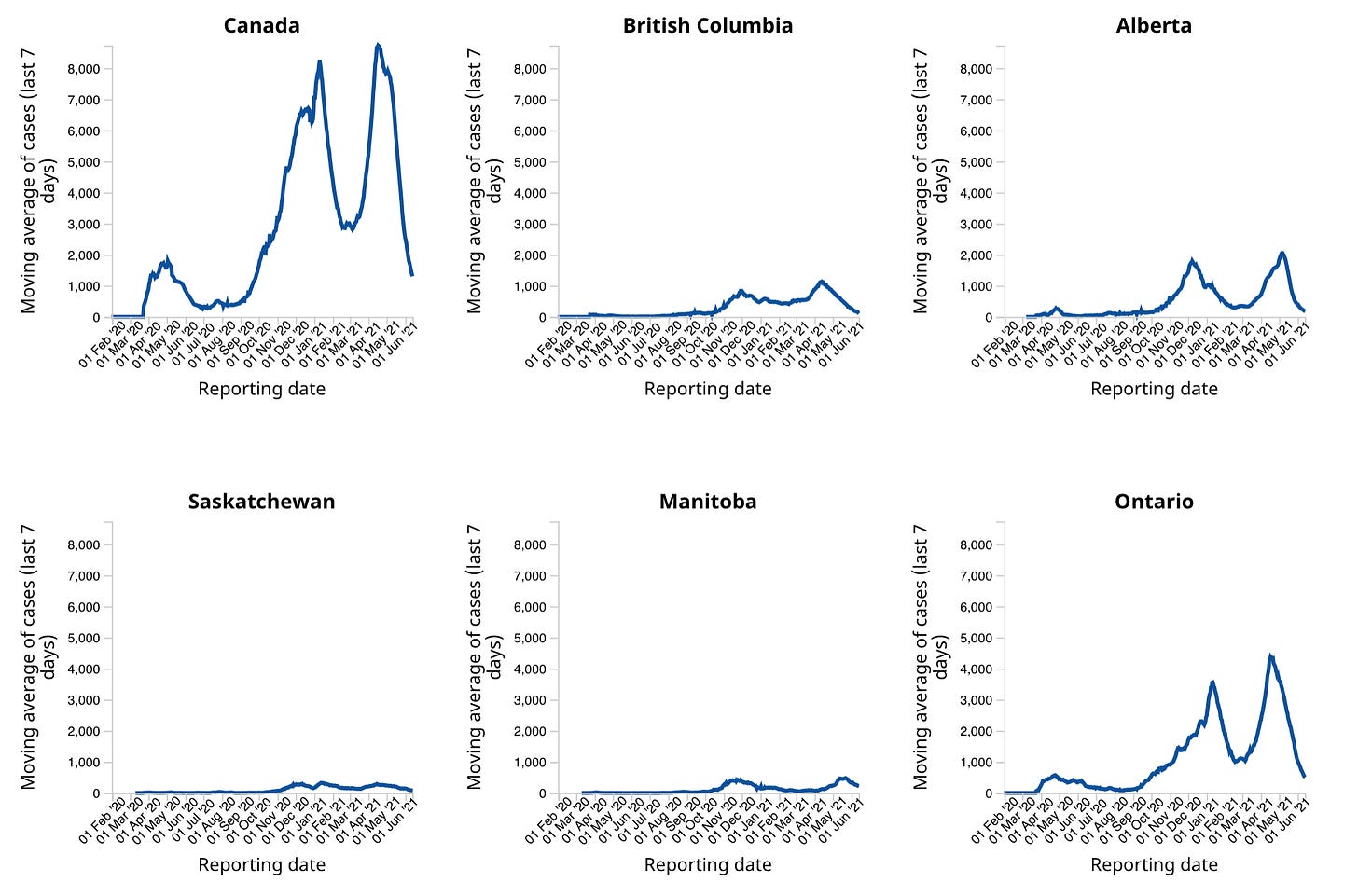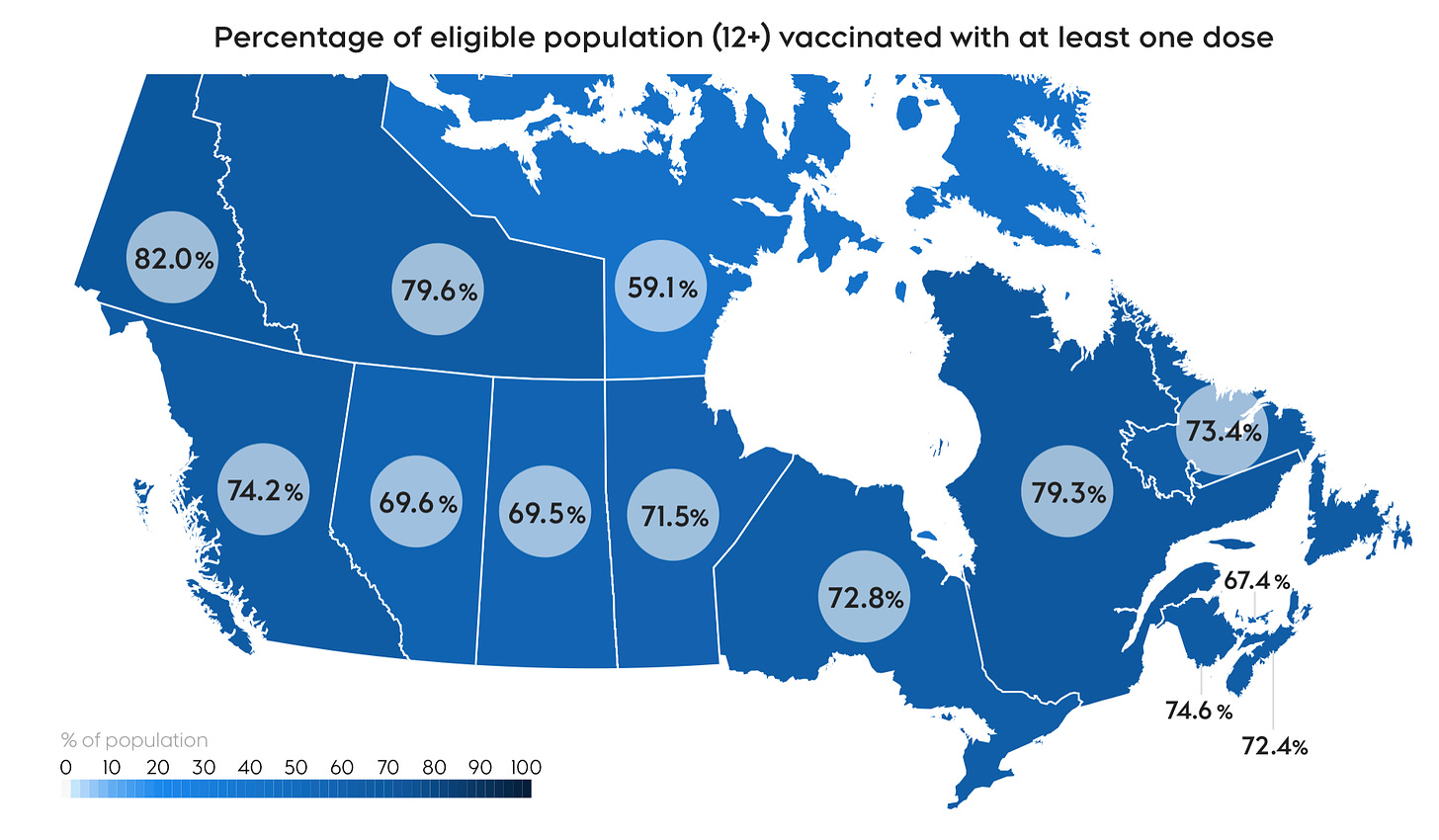🇩🇰 🇷🇺
Russia’s Ambassador to Denmark has been called on the carpet after Russian fighter jets violated Danish airspace near Bornholm. The incident happened not once, but twice, on June 11.
Denmark’s Foreign Affairs Minister Jeppe Kofod:
“The fact that Russian fighter jets twice violate Danish airspace is a serious and unacceptable violation of all applicable international norms and rules for military flights. It can not be interpreted as anything other than a both shameful and completely unnecessarily deliberately provocative Russian act. That is why we on the Danish side have also reacted clearly, sharply and promptly. Of course, this is also something we will discuss further with our allies.”
Kofod is attending an NATO summit in Brussels today along with Denmark’s Statsminister Mette Frederiksen. He says he will raise the Russian issue with his EU colleagues there as well.
“Fortunately, it is one of the rarities that I feel compelled to have the ambassador summoned. It is a serious and unequivocal diplomatic step. It has been made completely clear to the Russian ambassador that such provocative flights must stop and that international laws and regulations apply to Russia as well as to everyone else.”
🇩🇰
In COVID related health news, there will be some labor strife in the Danish health care sector. Nurses have voted 66% no to a mediated settlement with the employer. That means that, as of June 19 10% of the nurses’s union members across the country will launch rotating strikes.
Chairman of the Danish Nurses' Council and Chief Negotiator for nurses and radiographers Grete Christensen:
"I see the ‘No vote’ as a strong and unequivocal signal to both the employers and Christiansborg that the nurses have lost patience. Dissatisfaction with wages has grown too great. At the same time, after a year and a half with COVID, we are in a place where nurses have been overworked in a workplace that was already characterized by a high pressure work environment and that has nurses are beyond overworked. Employers and politicians will simply have to find money for both a better salary and better working conditions if they are to alleviate the frustrations of their employees.”
News of the strike action is not being welcomed by the chair of the Danish Regions Wages and Practices Committee.
Anders Kühnau:
“Of course, it annoys me very much that we are now facing a conflict in the healthcare system, and I am sorry on behalf of the patients who will ultimately pay a price. We have been negotiating for a really long time, and until the very end I had hoped that we could avoid labor strife.”
Kühnau says an emergency preparedness plan is in place to make sure that when nurses launch strike action that patients with urgent medical needs are being taken care of. That said, he adds, they are also now assessing which operations and treatments may have to be postponed.
-
Denmark’s National Health Board issued guidelines governing mask and visor use this morning. The health authority has decided that the epidemic risk has declined to the point where mask mandates in hospitals and other health facilities can be eased. Masks will be mandated for patients with any coronavirus symptoms, for anyone being tested, or vaccinated, and in “some places” in hospitals and general practices.
Deputy Director Helene Probst:
“The vast majority of people at increased risk have been fully vaccinated, and this also applies to a large part of the rest of the population and employees in the health care system. At the same time, we have good epidemic control. Therefore, we have assessed that there is no longer a reason for everyone to wear a mask within the healthcare system, but that this is only done in situations where there is a special risk.”
People who are in isolation but leave for to see a doctor or go to a hospital must also wear a mask. Anyone in a waiting room, in an ER, an emergency clinic, or to see a doctor, or any ear, nose, and throat physician must also mask up.
You can find all the guidelines in Danish HERE
-
Denmark is reporting 237 COVID infections and one more coronavirus death in the last day.
Yesterday there were 310,999 total corona tests yesterday, 67,596 PCR and 243,403 rapid, for a (PCR only) positivity percentage of 0.35%.
COVID hospitalizations (102) have edged upward (+4) while the number of infected people in an ICU (20) is unchanged of those the number on a ventilator (16) has inched up (+1).
The vaccination campaign has administered 2,725,559 1st dose vaccinations (46.6% of the population) while 1,501,788 people (25.7%) are now fully vaccinated.
Yesterday there were 47,161 total vaccinations done.
Dansk Bank Chief Analyst Mikael Olai Milhøj has been tracking vaccination numbers and says several new records were set last week. Milhøj says there were 447,816 total vaccinations administered last week, the most ever of any week, while 334,407 were 1st doses, also a new high.
He says in the alternate vaccination system run by a private provider, there were 3,231 vaccinations yesterday using the Johnson & Johnson vaccine, another record high.
Region Midtjylland received about 93,800 vaccine doses this week. Once again, most of those doses were from Pfizer/BioNTech. The health authority says most of the vaccine doses on hand will go to getting people inoculated for the first time, with about a third of the Pfizer doses targeted as second doses. It says to date, 310,000 people (23.2%) in the health region are vaccinated while 550,000 (41.2%) have one shot.
Region Midtjylland warns vaccine supply will decline in July and August, pushing efforts in the region to get everyone vaccinated until at least the end of September. This means another highly probable delay is coming for the National vaccination calendar, which has already been pushed to mid-September.
-
The Staten Serum Institut and Danish National Health Board have teamed up on a project called “Equality in vaccination.” They will now track, and publish, vaccination statistics at the parish level to drill down and find specific areas where vaccinations are lagging. Parishes are old church territorial areas, which now serve to define districts within a larger municipality or kommune på dansk.
Health Board Unit Manager Niels Sandø:
“We know from the efforts we have made to prevent infection locally that the municipalities' cooperation with local networks, test sites, and housing associations has played a major role. We are now taking those experiences further in the vaccination effort, where we can also see an inequality in who is vaccinated. We believe that a local effort makes a big difference, because distance and appointments, for example, do not become a barrier to being vaccinated.”
Parishes with low vaccination rates will be targeted with a number of measures designed to increase vaccinations. Officials will also share what works and doesn’t work as they go to further refine efforts to reach people and get them inoculated.
One of those targeted efforts to address lagging vaccination numbers took place today in Tingbjerg, a district in Metro Copenhagen. An appointment-free vaccination clinic was held there today, with people able to just walk in and get vaccinated. Danish Health Authority Director Søren Brostrøm was also there helping administer inoculations.
🇸🇪
Sweden does not report COVID numbers on Mondays and it usually updates statistics on Tuesdays but it probably won’t happen this week.
Sweden’s Public Health Agency says the country’s infectious disease database, SmiNet has been “temporarily closed for security reasons.” It is not providing any details as to what the security reasons are. The database holds, among other things, COVID case information. It plays a crucial role in the daily reporting of Sweden’s coronavirus numbers. The agency says “new cases cannot be reported at this time” adding that “an investigation is underway to be able to activate the reporting again.”
This is the second time in just over two weeks the database has been taken offline. At the end of May, Swedish authorities said there had been attempts to access the database and it was taken offline to see if a hacker or hackers had accessed the database and if so, what if any, information had been compromised. Sweden has yet to reveal any findings of multiple investigations into the possible breach.
-
Region Stockholm has opened vaccination up to those born in 1986 or earlier as of today. The region says to date 1.3 million total vaccinations have been administered, with 78% of those 50 to 59 years old and 54% of those 40 to 49 years of age having first vaccine doses.
Vaccine Coordinator Magnus Thyberg says nationally, 49% of the adult population now has at least one dose.
“We continue to maintain a high rate of vaccinations and now offer another age group the opportunity to book vaccination time. We vaccinate every day, all summer, and the vaccine we are given will reach the inhabitants as quickly as possible, so that more and more people can get protection against COVID19. Last week, for example, more than 157,000 vaccinations were registered in the region.”
He says vaccinations are entirely dependent on supply and right now vaccine supply is such that he can’t be certain when the next age group will get a vaccination invitation.
-
The Swedish Public Health Agency says a study conducted in March, before mass vaccinations of the general public began, showed 6.9% of those born in 1944 had COVID antibodies. However, the sample size is very small, just 735 people. As well, the study was contained to a single region: Västra Götaland. In comparison, the proportion of coronavirus antibodies among blood donors at the beginning of March aged 20 to 64 years old was about 22%.
Despite the study’s limitations, Karin Tegmark Wisell, Department Head and Assistant State Epidemiologist, says it shows the Swedish strategy has had an affect.
“A central part of the Swedish strategy has been to protect older people in particular, and the results from the sampling indicate that the infection control measures have had an impact. Now this age group must in principle be fully vaccinated and thus have good protection.”
🇫🇮
Finland has registered just 29 new infections in the last 24 hours with no new corona deaths. It now provides full reporting on just Wednesdays so that could change.
To date 2,845,519 1st dose (51% of the population) and 728,613 2nd vaccine doses (13.1%) have been administered.
🇳🇴
Since Friday Norway has added 406 infections and had no new virus deaths.
COVID hospitalizations (47) are unchanged ICU numbers (14) are down (-2) ventilator numbers (10) also down (-1).
To date 36.33% of Norwegians have had one vaccine dose and 25.04% have had both.
-
Norway has officially launched its full koronasertifikatet (vaccine passport) but right now its use and rules around travel are specific to Norwegians. The digital certificate will have a QR code that will glow green when scanned for people who are fully vaccinated, have had a recent negative test, or have had COVID in the last six months.
As far as fully vaccinated people entering Norway as of right now, anyone who is not Norwegian still faces mandatory quarantine and testing upon arrival. This will likely change when the EU COVID certificate officially comes online next month. When it does, Norway will incorporate it into its border controls, opening up quarantine-free travel for people coming into Norway from abroad.
Right now, the koronasertifikatet allows Norwegians to use it to travel outside Norway and return without having to self-isolate if they are fully vaccinated or who have had COVID within the last six months. There is one hitch everyone still has to take a COVID test in entry and must wait for a negative result before being free to enter Norway. Those who are fully vaccinated have the option to go home with the stipulation they take a COVID test within 48 hours.
People who have had one dose can quarantine at home with the ability to get out with a negative test on day three.
Not vaccinated? Then you must serve a full quarantine at a home or government quarantine hotel.
🇩🇪
Germany’s Health Minister Jens Spahn says almost half of the population has had one vaccination dose, with 40.2 million people in Germany (48.4% of the population) inoculated at least once. While over a quarter of the population, 21.8 million people (26.2%) are now fully vaccinated. Spahn says about half of those over 60 years old have had both doses, while over 80% have one dose.
He says Germany is still mandating mask use in hospitals and other health facilities due to increased infection risk.
🇨🇭 💉
Today, Moderna filed with Swissmedic to expand use of its COVID vaccine in Switzerland to adolescents as young as 12. The company has already filed to do the same with the European Medicines Agency, Health Canada, and US FDA. In clinical trials involving 2,500 adolescents, there were no cases of COVID found among everyone in the trial who has received both vaccine doses.
🇬🇧
The concerning Delta variant has caused British Prime Minister Boris Johnson to delay the country’s next round of reopening for four more weeks.

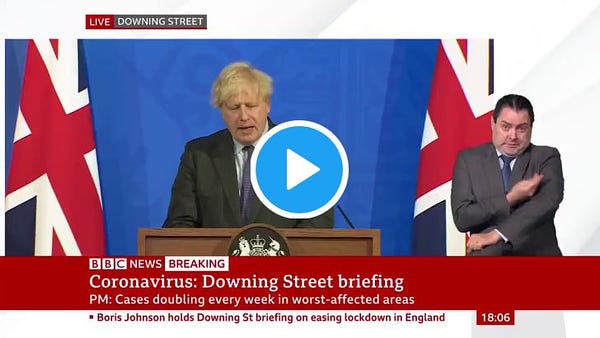
🇬🇧 💉 🦠
A new study from Public Health England has found that two doses of the Pfizer/BioNTech and AstraZeneca vaccine is highly effective against preventing hospitalization from Delta variant infections. The story found Pfizer’s efficacy was 96%, while AstraZeneca was 92%. The health agency says they are still working to determine vaccine protection against Delta variant mortality.
💉
Another COVID vaccine looms to be entering the battle against the coronavirus. Novavax has released phase three trial results today and its vaccine was found to have a 90% efficacy against laboratory-confirmed symptomatic COVID infection. In a statement, the company said its vaccine was 93% effective against variants of concern and variants of interests.
Novavax says it will now file for authorization of use with the US Food and Drug Administration and other regulators. The company says it can produce up to 100 million doses per month by the end of the third quarter.
🇨🇦
Canada reported 1,122 infections while suffering another 17 coronavirus deaths yesterday.
The Canadian vaccination campaign has administered 24,549,147 1st dose vaccinations (64.59% of the population) while 4,459,009 people (11.73%) are now fully vaccinated.
As for Ontario today Health Minister Christine Elliott tweeted “Ontario is reporting 447 cases of #COVID19 and nearly 13,600 tests completed. Locally, there are 110 new cases in Toronto, 61 in Peel, 56 in Waterloo, 39 in Porcupine and 29 in Durham. As of 8:00 p.m. yesterday, 11,344,441 doses of the COVID-19 vaccine have been administered, including 135,574 doses administered yesterday.“ There were also four more deaths. Ontario is also reopening provincial borders with both Quebec and Manitoba as it continues to ease COVID restrictions.
Quebec reported 123 infections and one more death today.
In Atlantic Canada, Nova Scotia recorded eight infections. New Brunswick had seven. Newfoundland and Labrador had one.
Manitoba saw 194 infections and another seven virus deaths yesterday.
There were just 65 infections and no new corona deaths in Saskatchewan yesterday.
Alberta recorded 165 infections and one more death yesterday. The province has launched a vaccination lottery offering millions in prizes to motivate people to get vaccinated.
B.C. doesn’t report on weekends and will table three days worth of data later today.




